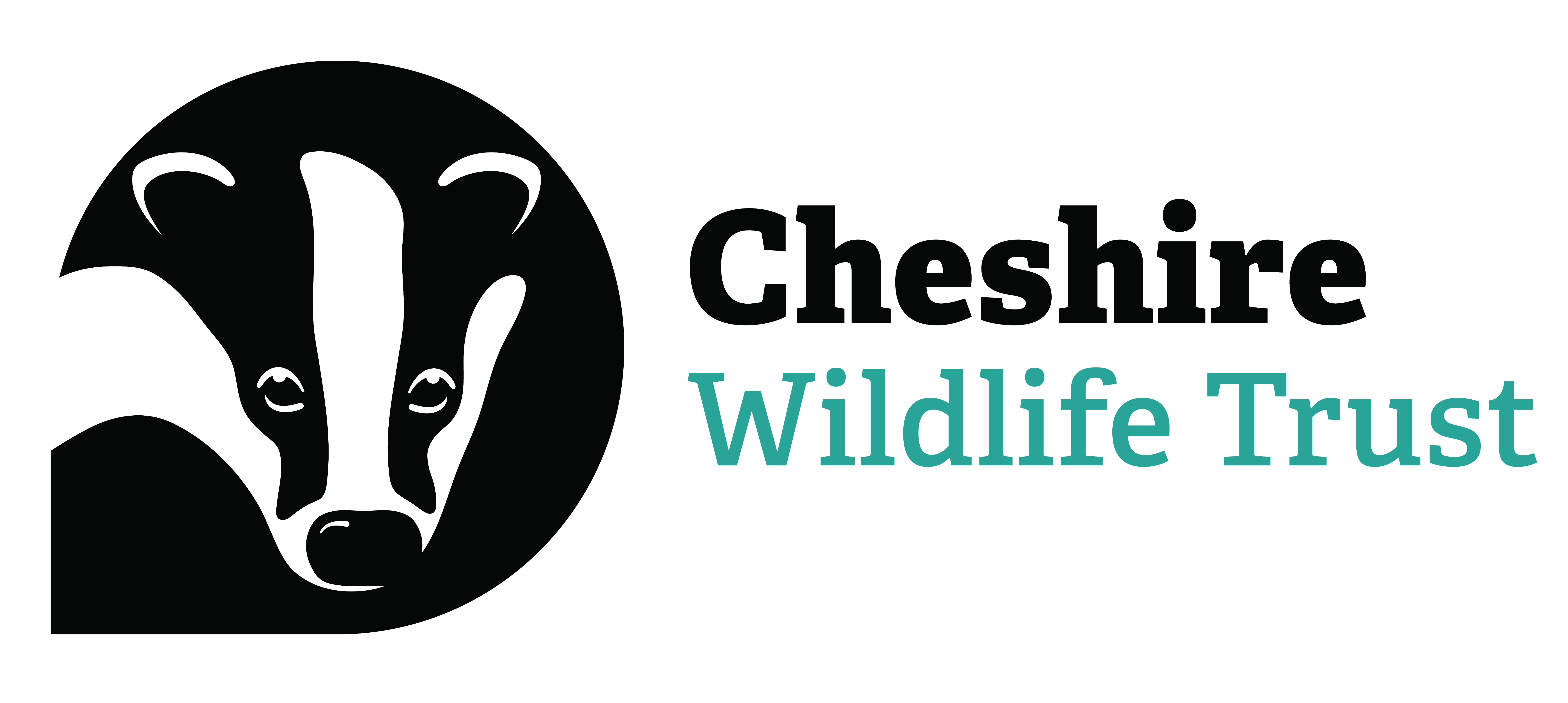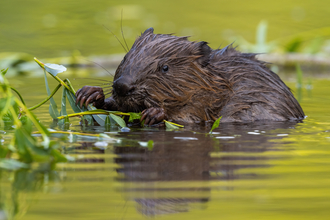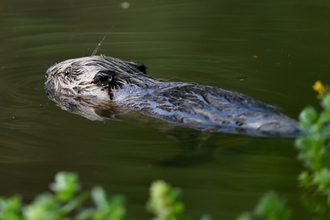After checking the wildlife cameras last week, it was confirmed that Rowan and Willow (the pair originally released in late 2020) have successfully bred for a second time increasing their family by another three, building on the first kits Bramble and Aspen who were born in Summer 2022.
The latest additions to the family mean there are now seven beavers living together at the release site. They are expected to stay near the family lodge for several years before dispersing to set up their own territory.
Breeding takes place between December and April and the pregnancy lasts for around 103 days. Females give birth to their litter of 1-6 young in early summer (the average litter is 2-3 young). The young, called kits, spend their first few months hidden in a lodge, when they eventually venture out into the world they set to work felling trees and building dams much like mini versions of their parents.
Kev Feeney, Programme Manager for Rivers and Wetlands at Cheshire Wildlife Trust said:
“It’s fantastic to learn the news of three new beaver kits being born at Hatchmere. In under three years, we now have a nice little family living together creating a new diverse wetland landscape that didn’t exist previously. Over the last six months they have been very busy with some examples below:
- Water levels have continued to increase with the creation and expansion of dams, one of which is now over 200 metres long and another over a metre high.
- The effects of the lack of rain and annual drought is not being seen on the beaver created wetland where water levels are maintained. Holding water on site is re-charging the surrounding area, providing much needed water to vegetation which is supporting a diverse range of invertebrates that are struggling elsewhere due to the lack of rain.
- The winter witnessed the beavers felling lots of trees however this behaviour stopped in spring and their diet has switched to grazing on open areas for vegetation such as hogweed.
- The aims of the project were to create a diverse wetland to support a whole host of wildlife and to improve the water quality flowing downstream into Hatchmere Nature Reserve. Early research is indicating that these aims are being met. Waterfowl numbers have increased dramatically with lots of breeding on site and multiple families of ducklings present at any one time. Water entering the site has slowed down allowing natural processes to take place, sediments are being trapped by the dams and is now lower in nutrients as it reaches Hatchmere lake.”
Cheshire Wildlife Trust’s five-year ‘nature-led’ project aims to save and restore the wetland ecosystem at Hatchmere Nature Reserve. The Trust still needs to raise £17,000 to complete their five-year project. Visit www.cheshirewildlifetrust.org.uk/beaver-appeal to donate.
Why is Cheshire Wildlife Trust bringing beavers back?
England is one of the world’s most nature-depleted countries in the world. Beavers offer a chance to reverse the dramatic decline in our wildlife by allowing nature to restore itself. The Government’s decision to allow a wild population of beavers to remain in the River Otter in East Devon has reinforced the importance of bringing these animals back into England’s countryside.
The River Otter beaver trial showed that the animals' skill replenished and enhanced the ecology of the river catchment in East Devon. They increased the "fish biomass” and improved the water quality. This meant more food for otters - beavers are herbivores - and clearer and cleaner water in which kingfishers could flourish.
Their dams worked as natural flood-defences, helping to reduce the risk of homes flooding downstream.
The Cheshire Wildlife Trust project is one of 25 beaver reintroductions in England, with other sites in the South West, Kent, Gloucestershire, East Anglia and Yorkshire.



